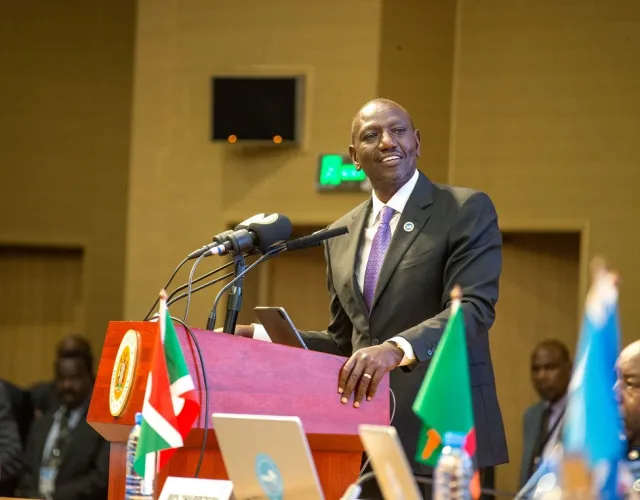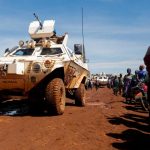The handlers of President William Ruto’s social media accounts found themselves in an embarrassing situation after being called out by citizens for copying content.
On Monday morning at around 7:18 am, a Twitter user going by the handle @Kapyoseiin posted a long story about the “Second Vulture”. The post was about the photo taken by South African photojournalist Kevin Carter during the famine in Sudan in 1993-94, a photo that later won him a Pulitzer Prize for this “amazing shot”.
According to the story, the photojournalist was depressed when asked what had happened to the dying girl he had photographed with the vulture behind her, waiting for her to take her last breath before devouring her.
“However, while Kevin Carter was enjoying his feat and being celebrated on major news channels and networks worldwide for such an ‘exceptional photographic skill’, he lived only a few months to enjoy his supposed achievement and fame as he later became depressed and took his own life,” read part of Kapyoseiin’s post.
Hours later, at 14:44, the exact same lengthy post was posted on President Ruto’s Twitter account, with no changes.
Kenyans on Twitter were quick to spot the original post by @Kapyoseiin and called President Ruto’s account out.
Kapyoseiin also said that the President had copied his post without attribution.
President Ruto’s Twitter account deleted the post, only to repost it minutes later, but this time with quotation marks. However, the original poster of the vulture story was still not given attribution.
“In the 1990s there was a widely circulated photo of a vulture waiting for a starving little girl to die and feast on her corpse. The photo was taken during the famine of 1993-94 in Sudan by Kevin Carter, a South African photojournalist who later won a Pulitzer Prize for the ‘amazing shot’,” reads the first paragraph of the second post, which appeared at 3:43 pm.



